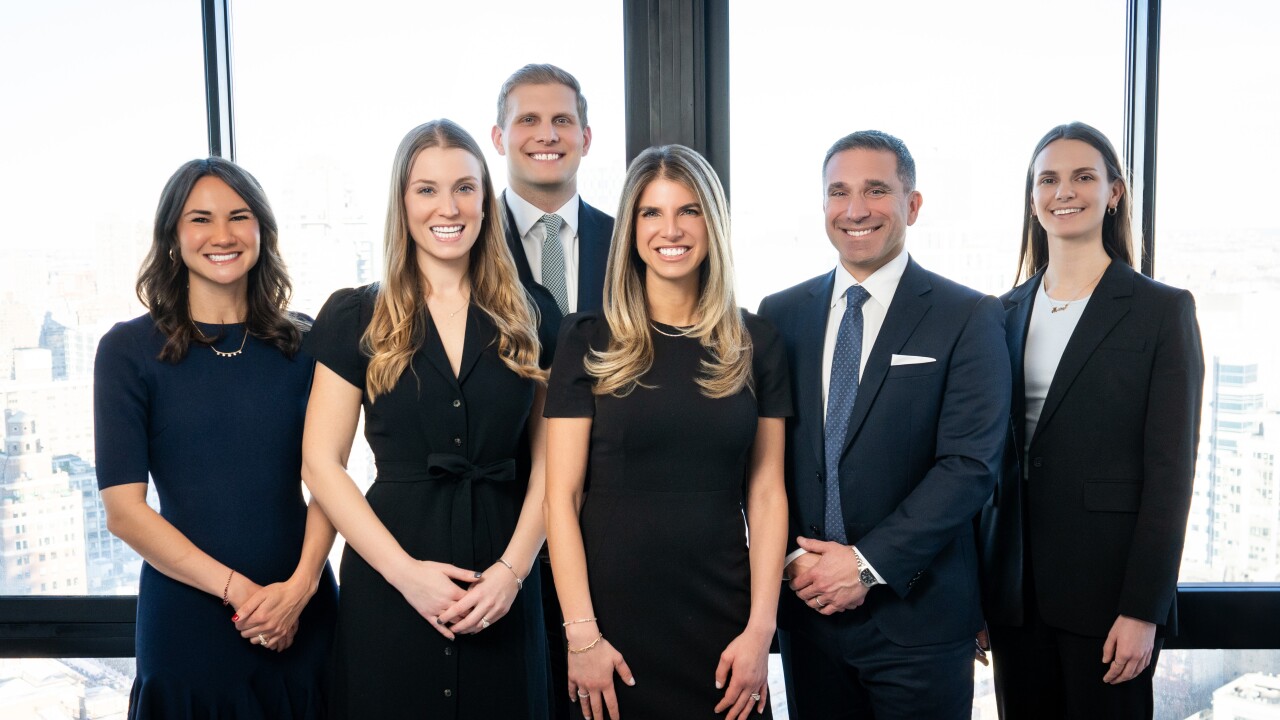Wall Street is opening its checkbook to soften the blow from a blue wave.
For the first time in a decade, the securities and investment industries are spending more on Democrats than Republicans ahead of the Nov. 6 midterm elections. Bankers are also giving to Democrats.
A big part of that is anti-Trump, but a lot of the money is flowing to moderate Democrats, a sign Wall Street is seeking Washington allies to temper the impact of progressives such as Representative Maxine Waters and Senator Elizabeth Warren, who are poised to hit the industry with subpoenas and tougher oversight.
Polling suggests Democrats are likely to wrest control of the House. The non-partisan Cook Political Report said last week that Democrats could gain as many as 35 seats. They need 23. The Senate is expected to remain in GOP hands, polls say.

While bankers continue to prefer Republicans, they’re being generous to Democrats, too. Finance folks have embraced moderates such as Representatives Josh Gottheimer of New Jersey, David Scott of Georgia and Jim Himes of Connecticut.
Corporations and lobbyists mostly have financial-services issues in mind, while individual contributors may be motivated by considerations such as the desire for Congress to act as a check on President Donald Trump.
In some cases, the money flow is simply about access to power. Lou Correa, a first-term California Democrat, doesn’t sit on the financial services committee and isn’t particularly engaged in banking issues compared with some of his peers. But his vote will be needed if the House takes up any bills affecting financial institutions, so groups such as the American Bankers Association are running political ads for him.
“I didn’t even know they were running ads for me until you called,” Correa said.
Schwab, Vanguard and LPL explained their approach to campaign donations as the industry and its supporting sectors provided $19 million in PAC contributions.
Wall Street and its allies are hopeful there will be opportunities for victories on the margins.
Issues like tweaking money-laundering rules and easing some capital requirements might be doable at some point, advocates said. It’s happened before. In a Democratic-controlled Senate in 2014, Wall Street successfully lobbied lawmakers to attach a provision to a must-pass spending bill that eased some derivative rules for big banks.
“It’s going to be a very thin majority,” said Paul Merski, a lobbyist for the Independent Community Bankers Association. Moderate Democrats, especially those who win in swing districts, “will be the deciding factor. And they agree with us on a lot of things.”
Banks face a range of potential headaches if Democrats capture the House. While it’s unlikely legislation breaking up the big banks will pass, there will be a number of Democratic initiatives that will vex Wall Street.
Waters, of California, is in line to lead the powerful financial services committee. The panel oversees Wall Street regulators and writes laws affecting every corner of finance. The job has subpoena power.
When it comes to investigations, Wells Fargo tops the list. Waters and others continue to call for the bank’s top management, including Chief Executive Officer Tim Sloan, to be fired in the wake of multiple scandals in which bank employees opened accounts without customers’ knowledge. Expect hearings and investigations.
Equifax is another target of Democrats. Both moderates and progressives agree that the company’s botched response to a 2017 data breach is worthy of hearings with Equifax executives and perhaps legislation imposing tougher rules on credit-reporting agencies.
Waters has been one of the loudest voices calling for Trump’s impeachment, and is likely to dig up dirt on his financial ties to Russia. A key target for her is Deutsche for the loans it made to Trump and its role in helping wealthy Russians move billions of dollars.
Waters also promises closer scrutiny of officials appointed by Trump. That includes the Consumer Financial Protection Bureau’s Mick Mulvaney, Comptroller of the Currency Joseph Otting and Randal Quarles, the Federal Reserve’s vice chairman of supervision.
Meantime, progressive groups are pressuring Democrats to be as aggressive as possible.
“Wall Street’s investment in the Democratic majority pales in comparison to what everyday people, small donors have been giving,” said Karl Frisch, executive director of advocacy group Allied Progress. “Any Democrat that reads the election results and interprets that as voters wanting to give Wall Street favors needs to go back to night school.”






